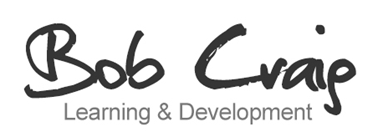Why Pastoral Provision matters
Some examples of high-quality pastoral care
(Written by Sandra McManus, Educational Consultant and former Deputy Principal at The Sixth Form, Bolton)
Whenever there is a tragedy reported on TV relating to young people, be it knife crime, suicide, radicalisation, drug or alcohol addiction, the cry from government and the public is to make it mandatory for that topic and its prevention to be delivered in colleges and schools. Such topics are already central to pastoral provision in most or all colleges, alongside ever-increasing external requirements for what ‘must’ and ‘should’ be provided.
As a senior leader at The Sixth Form, Bolton until 09/24, I always ensured that despite funding challenges, high quality pastoral provision was at the heart of the student experience, that academic and pastoral staff worked in tandem and that pastoral initiatives and topics were seen as central to academic achievement, as well as wellbeing, citizenship, employability and preparation for independent living.
At Bolton we tried to do all the essentials well, such as exploring issues relating to ‘Keeping Safe’ and ‘Sustainability’, developing study skills, encouraging involvement in enrichment and volunteering opportunities, work experience, to name just a few. Here are some specific initiatives:
- Project Based Learning: Deployed evidence based and PBL approaches, where-ever possible, placing a lot of emphasis on employability skills and University-ready skills. Students would be guided to produce high quality resources, art work, digital media and if they were presenting to peers, they would be taught appropriate skills, techniques and behaviours associated with presentations.
- High quality one to one emotional support: All pastoral staff are trained as MH First Aiders by Sarah Ball, the AP Pastoral, who also trains around 100 over 18s annually in the award. For those learners planning to go into careers where understanding mental health is important, such as nursing, medicine, social work and care professions, the universities see this as a clear benefit to them when young people apply to study with them.
- One to one Performance Coaching for students ‘At Risk’: All students who are underachieving at specific assessment points throughout the year are offered one to one performance coaching. The focus of this is not on the learning of academic subject matter, but rather on things like study skills, note-making, time-management, focused attention, rather than multi-tasking, interleaving, spaced practice and other things associated with ‘how’ to learn. These are led by pastoral staff and supported by Bob Craig, an external consultant
- Focusing on the entire learner journey: e.g., CPD for staff and group tutorials with students about transitions from one thing to another, such as from school to college, Yr 1 to Yr 2; comfort zone to uncertainty; overcoming adversity and coping with setbacks; foregrounding examples of how ‘successful’ students managed transitions in college and on leaving
- Alumni talks from previous students: students who are now at university, in the workplace or at a more advanced career stage
- Parental Engagement: inviting parents to attend interactive training on topics like ‘understanding the teenage brain’, ‘effective student routines, habits and practices’, ‘initiating conversations about sensitive topics’. Bob Craig helped to train staff and deliver sessions himself to parents, on such issues.
- ‘Pathways’ programmes: providing students with opportunities to develop essential work place skills for their future. This includes the mastery of basic digital skills such as the Microsoft suite, how to use AI appropriately and to support learning, research for employment, recruitment, CV creation, essential communication skills, presentation skills, applications, creation of a LinkedIn profile and considerations of ethical business to name but some topics. Whilst each learner builds their own profile, they do so within an economic or career sector of their choice. Local employers, charities and other organisations set some of the tasks to be completed and oversee the modules delivered. This programme has supported some students to gain really high calibre Degree Apprenticeships with Rolls Royce, HP and Land Rover Jaguar
- Live briefs set by employers: The Art Department at the Sixth Form Bolton, for example, have worked on several art commissions. Their most recent commission has been with Bolton Council (see below).


High quality pastoral provision can be akin to being a parent. Young people might not always recognise aspects of pastoral provision as being important and given the choice would give them a miss! At The Sixth Form, Bolton we made sure pastoral staff were trained in coaching skills and other approaches to enable them to persuade, inspire, cajole, mentor, nudge and teach students to develop essential skills and experiences for college life and beyond. In meeting these needs, institutions are using public money wisely and giving excellent value for money.



